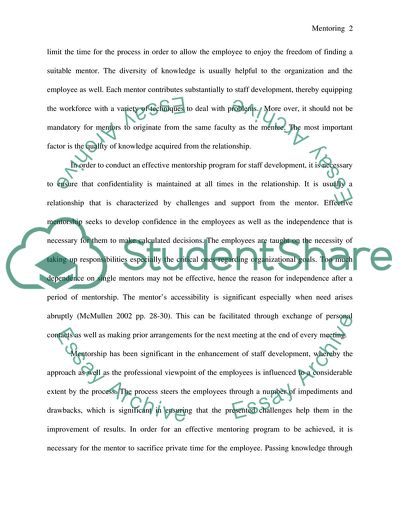Cite this document
(Mentorship for Effective Staff Development Research Paper - 1, n.d.)
Mentorship for Effective Staff Development Research Paper - 1. Retrieved from https://studentshare.org/human-resources/1722512-mentoring
Mentorship for Effective Staff Development Research Paper - 1. Retrieved from https://studentshare.org/human-resources/1722512-mentoring
(Mentorship for Effective Staff Development Research Paper - 1)
Mentorship for Effective Staff Development Research Paper - 1. https://studentshare.org/human-resources/1722512-mentoring.
Mentorship for Effective Staff Development Research Paper - 1. https://studentshare.org/human-resources/1722512-mentoring.
“Mentorship for Effective Staff Development Research Paper - 1”, n.d. https://studentshare.org/human-resources/1722512-mentoring.


